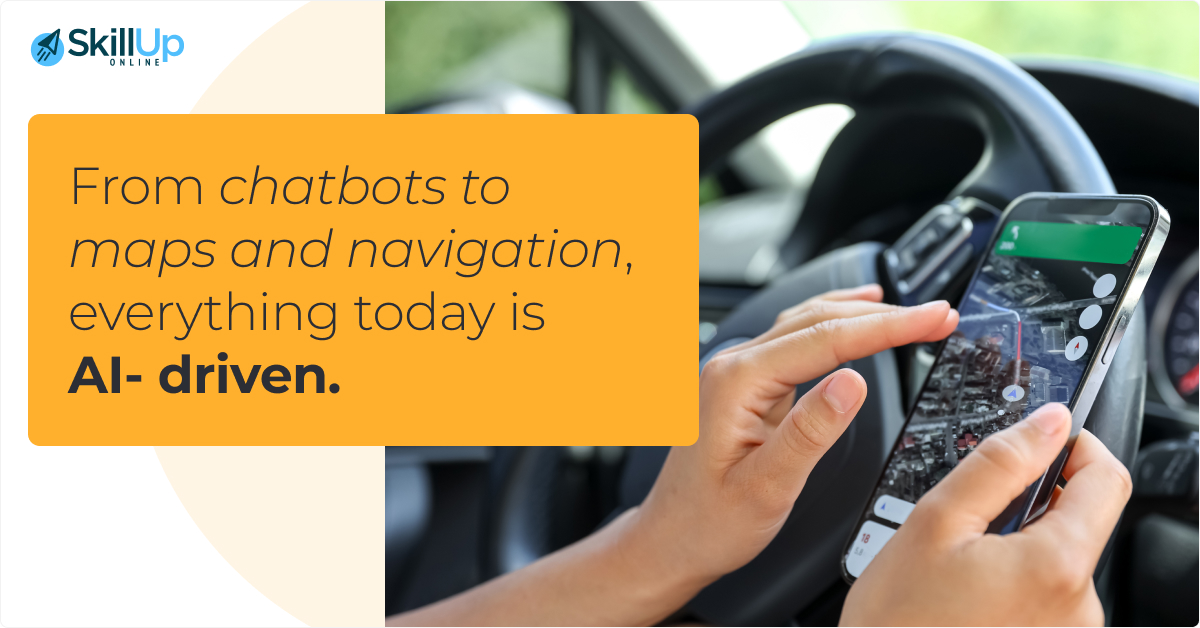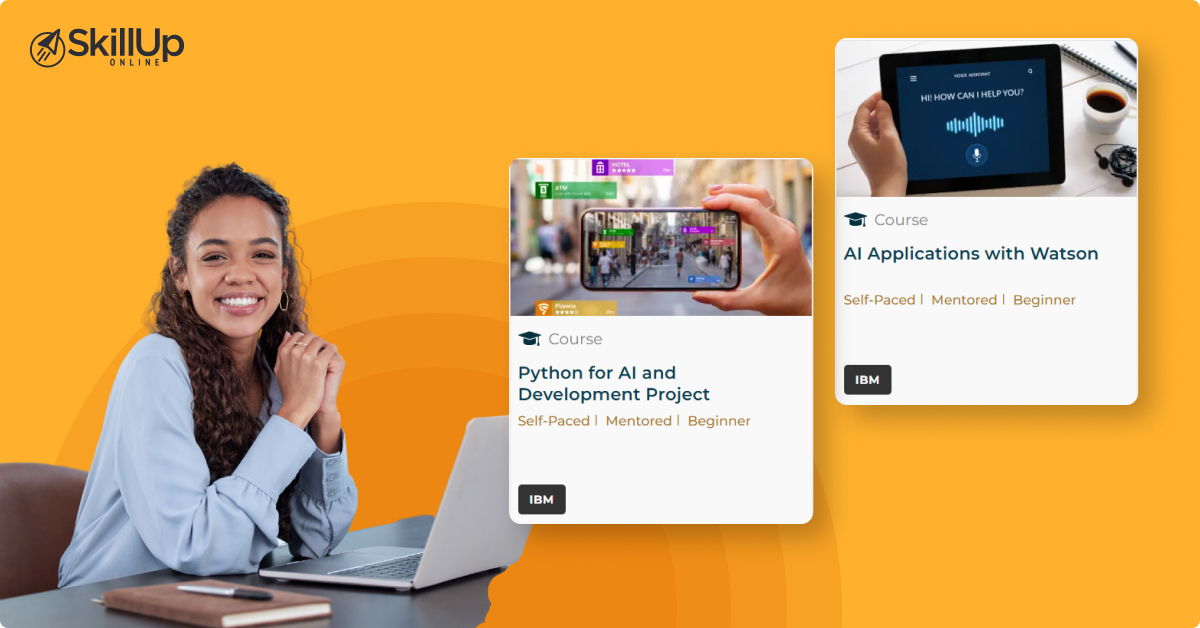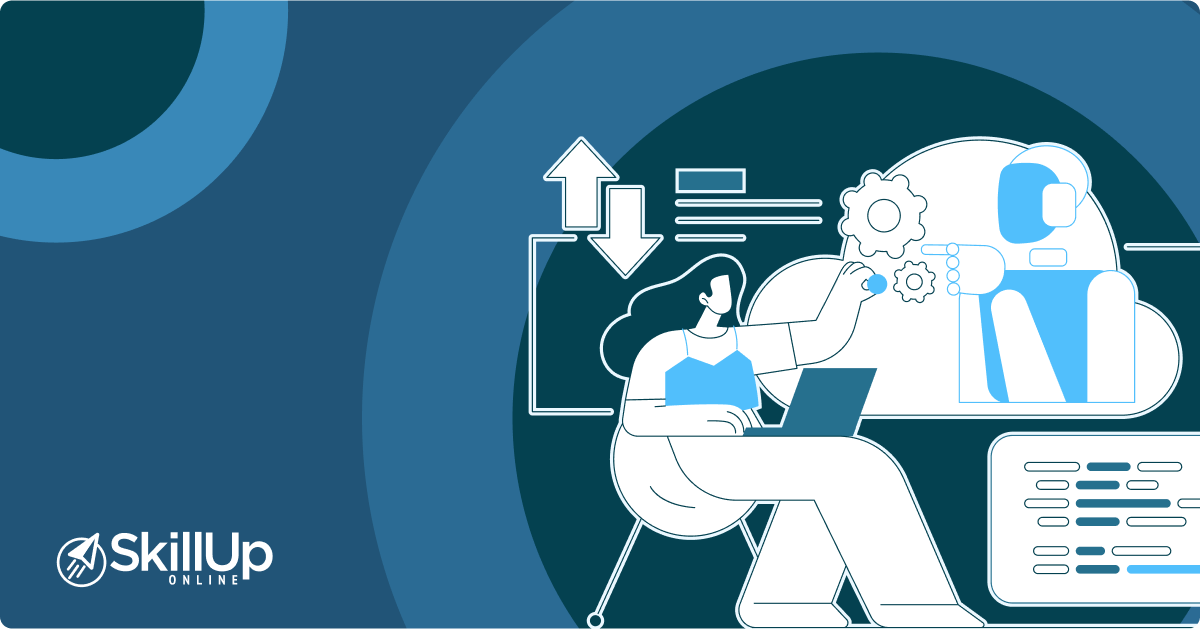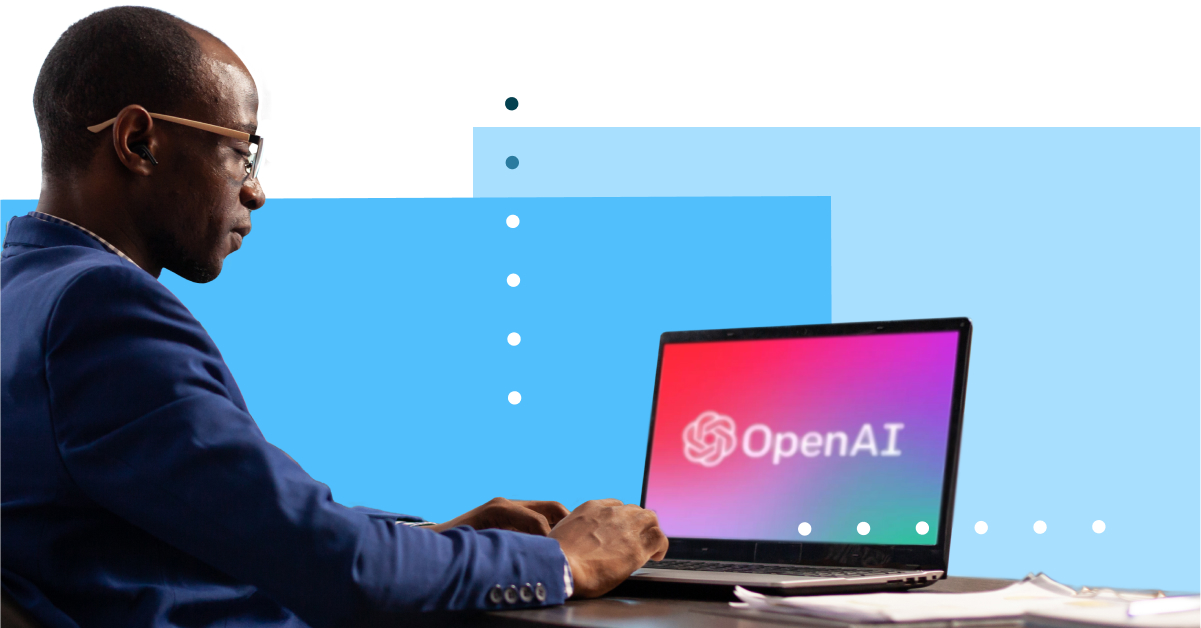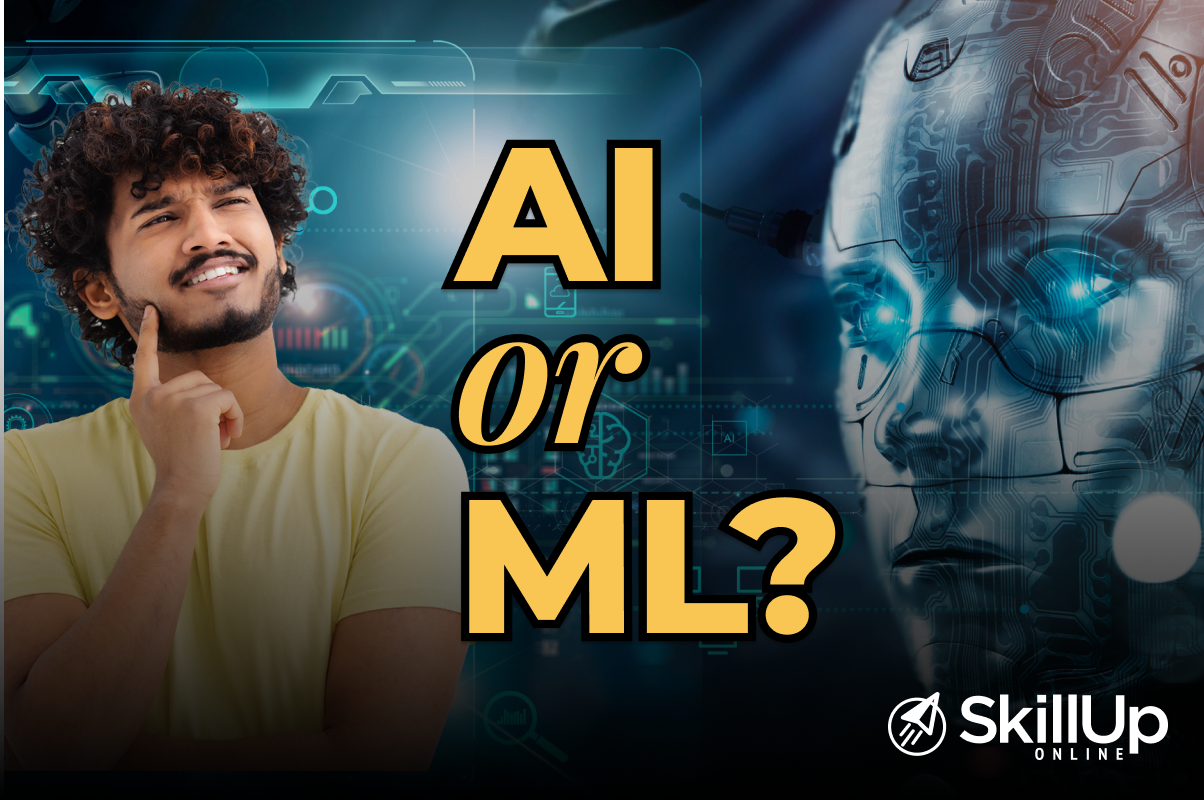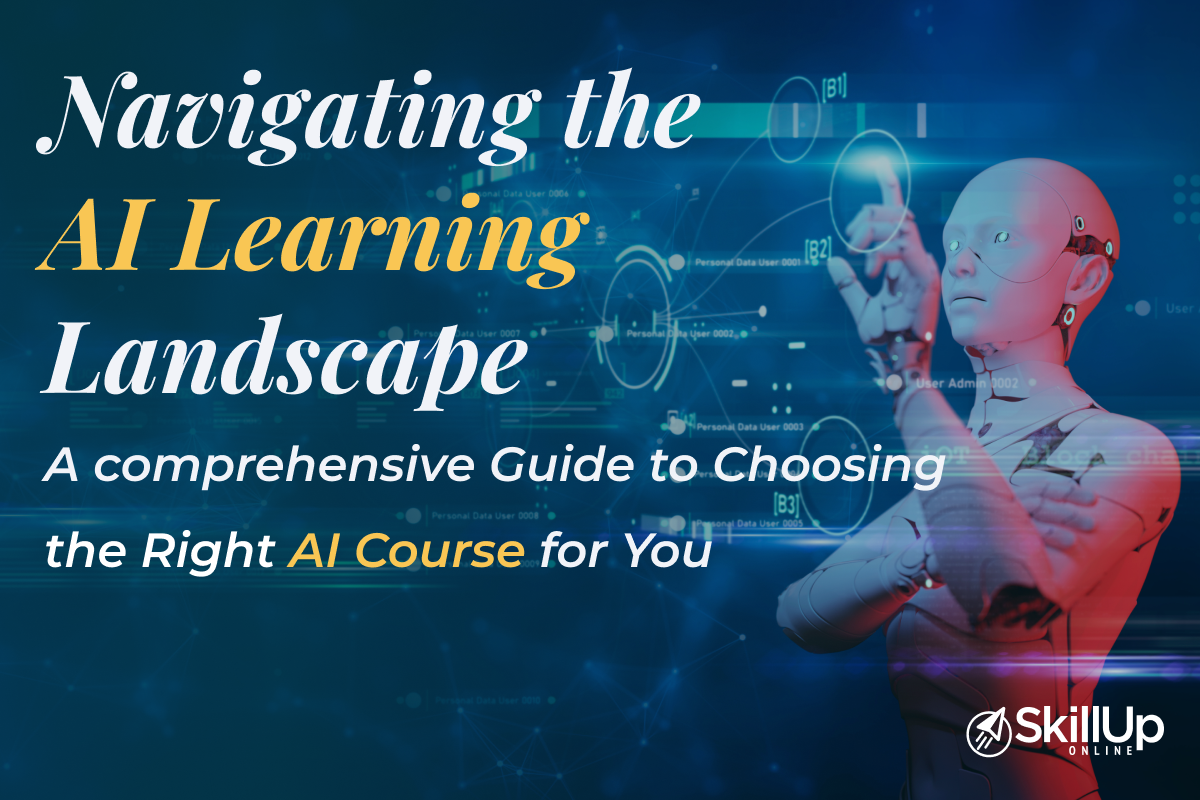Embarking on a path to AI certification isn’t just a trend—it’s a calculated career move that opens a world of possibilities. From chatbots to maps and navigation, everything today is AI- driven. This means AI is transforming our lives and unlocking a vast potential for career growth. More and more people, therefore, are opting for AI certifications. But what’s next? How do you utilize your AI learning and certification to boost your career?
Whether a beginner or a seasoned professional, you’re in the right place if you are wondering how to leverage your shiny new AI certificate for optimal career impact. From job-hunting in the U.S. market to continuing education and networking, we will explore all angles to help you make informed decisions.
Leveraging Your Certification: The Immediate Actions to Take
Update Your Resume and LinkedIn Profile
After obtaining your AI certification, the first step is to update your professional profiles. Start with your resume, incorporating the certification under your educational or skills section. Don’t just list it—briefly note what the course covered and the skills you gained. Similarly, update your LinkedIn profile and consider writing a post to announce your accomplishment. LinkedIn is an excellent platform to catch the eye of potential employers and can act as an extended resume.
Announce Your Achievement: The Right Platforms
It’s natural to want to share your achievement; the key is knowing where to do it. Beyond LinkedIn, consider tech-oriented platforms like GitHub, industry-specific forums, or even a personal blog. This can help you reach audiences most relevant to your career goals.
Evaluate Job Opportunities: How to Filter
With a new certification, job opportunities may appear more feasible or exciting. However, it’s essential to filter these based on role relevance, company reputation, and geographic location. Evaluate how the job aligns with your newly acquired skills and long-term goals.
The U.S. Job Market for AI Professionals
Types of Roles
In the U.S., the AI landscape is diverse, offering a range of roles like data analyst, machine learning engineer, AI researcher, and more. Each role comes with its unique set of responsibilities and prerequisites. Knowing the nuances can help you decide where your certification and skills would be most impactful.
While certifications are an excellent start, U.S. employers often seek additional soft skills and practical experience. Skills like problem-solving, effective communication, and ethical reasoning are highly valued. Practical experience can often be the differentiator; hands-on courses like the 11-month TechMaster Certificate Program in Data Science & Artificial Intelligence have been designed to specifically train learners with practical hands-on that industry values.
Geographical Hotspots: Where to Look for Jobs
Certain U.S. cities like San Francisco, Seattle, and New York are buzzing with AI opportunities. However, remote work has opened doors to other regions as well. Being open to relocation or remote work can significantly widen your job prospects.
For further reading on starting a career in AI, you can check out this SkillUp Online blog, which provides a comprehensive guide on how to start your career in AI.
Networking and Branding Yourself in the AI Community
Online Communities: Where to Engage
Your learning journey shouldn’t stop at certification. Online communities like GitHub, Kaggle, and LinkedIn are excellent platforms to connect with peers and industry experts. Engage in meaningful discussions, collaborate on projects, and keep your finger on the pulse of industry trends.
Industry Events and Conferences: Making In-Person Connections
Events like NeurIPS, the O’Reilly AI Conference, and local meetups are invaluable for networking. Not only do they offer a deep dive into AI topics, but they also provide an opportunity to meet industry leaders and potential employers.
Publishing and Content Creation: Sharing Your Expertise
Building a personal brand is pivotal. Writing blogs, creating video content, or publishing research can make you a thought leader. You can also look at SkillUp Online’s blog to get inspiration on what to expect from tech professionals in AI.
Continuous Learning: Keeping Up with the Pace
In AI’s dynamic world, there are options other than staying stagnant. From advancements in natural language processing to the rise of federated learning, staying current is crucial. A good starting point could be to attend webinars and read academic journals on platforms like arXiv.
Further Certifications: Specialization vs. Diversification
While your initial certification provides a solid foundation, diving deeper into specialized areas or diversifying your skill set can be equally beneficial. SkillUp Online offers a variety of advanced courses like Deep Learning with TensorFlow to help you specialize or courses like AI Applications with Watson for those looking to diversify.
Resources for Continuous Learning: Books, Courses, and Workshops
Beyond formal education and certification programs, there are additional resources that can significantly enhance your AI knowledge and skills. Online webinars, workshops, books, and courses can be a good starting point to expand your understanding of AI.
“The Hundred-Page Machine Learning Book” by Andriy Burkov:
Published in 2019, this sought-after book is still one of the prime choices for those looking to grasp the fundamentals of machine learning quickly and efficiently. It distils complex concepts into concise explanations, making them accessible to learners at all levels. It’s a valuable resource for rapidly understanding machine learning principles.
You can also read other books like “Machine Learning for Absolute Beginners’’ by Oliver Theobald and “Machine Learning in Action’’ by Peter Harrington.
Workshops and Webinars:
Participating in workshops and webinars can provide you with practical insights, hands-on experience, and exposure to the latest trends and tools in AI. Many organizations offer online sessions to keep learners up to date with industry advancements.
Online Courses and Programs
Another great way to expand your knowledge of AI is to take online courses and programs. For example, SkillUp Online’s TechMasters Program in Data Science & Artificial Intelligence could be a good starting point if you want to build your skills from fundamentals to advanced level. Opting for this program will ensure that you’re gaining theoretical knowledge and practical skills through hands-on projects and real-world applications.
These resources are valuable supplements to your formal education and certification journey. They offer flexibility and the opportunity to explore specific areas of interest, ensuring that you remain well-informed and adaptable in the dynamic field of AI.
Transitioning Into New Roles
Your initial days at a new job are crucial. Establish short-term and long-term goals and communicate with your team and supervisors. Evaluate your progress with key performance indicators (KPIs) and stay open to feedback. Building relationships with team members is vital. Understanding your role and how it aligns with the team’s objectives ensures better communication and collaboration.
Navigating Ethical and Legal Concerns
Compliance with federal and state regulations is crucial in the AI sector. Knowing the legal landscape can help you navigate challenges effortlessly. The U.S. has specific guidelines for data privacy, and being versed in them is vital.
Ethical considerations in AI go beyond legal obligations. Concepts like data fairness, algorithmic transparency, and AI for social good should be at the forefront of your practices. Knowing your actions and their impact can safeguard you from legal consequences.
Financial and Career Growth Projections
Securing an AI certification can significantly enhance your earning potential. According to Zippia, the average salary of an AI specialist in the US is $151,994 annually.
However, these figures can differ based on geographic location, industry, and years of experience. For example, San Francisco Bay Area professionals can expect higher salaries to compensate for the higher cost of living.
Career Ladder: Short-Term and Long-Term Projections
The career paths in AI are as diverse as the technology itself. In the short term, you can aim for positions like AI analyst or AI developer. Over time, roles can shift towards AI Architect, AI Research Scientist, or AI Ethics Officer. There are vertical career paths and lateral opportunities—like transitioning from healthcare AI into financial services AI.
Tips for Negotiation: Getting What You’re Worth
Negotiation isn’t just an art but a necessary skill. Before entering any negotiation, research the average salaries for your role in your specific geographic location. You can utilize platforms like Glassdoor and LinkedIn to gather this information. Also, understand that compensation isn’t just about salary; it also includes benefits, stock options, and work-life balance. Read this blog on digital transformation to determine which skills are most valued and use that knowledge to your advantage during negotiations.
Self-Assessment Quiz and Answer Key
Before diving into the professional world of AI, measuring your understanding and readiness is essential. This self-assessment quiz will provide you with that valuable snapshot.
Quick Test to Assess Your Understanding:
This test comprises ten questions covering key areas like AI algorithms, ethics, the job market, and networking. Plan to spend approximately 30 minutes on this test. Remember, this is for personal growth; there’s no grading here.
- What is supervised learning?
- What are the ethical considerations when deploying AI in healthcare?
- What’s the primary role of a machine learning engineer?
- What is a convolutional neural network commonly used for?
- What are some popular programming languages for AI development?
- Name two U.S. cities that are major hubs for AI jobs.
- How often should you update your resume or LinkedIn profile when seeking employment?
- What is the Turing test?
- Which of the following are common applications of natural language processing?
- What is transfer learning?
Answer Key:
- Supervised learning involves training a model on a labeled dataset.
- Ethics in AI healthcare include patient confidentiality and equitable access.
- A machine learning engineer’s primary role is to design and implement machine learning algorithms.
- Convolutional neural networks are commonly used for image recognition tasks.
- Python, R, and Java are among the popular languages for AI.
- San Francisco and New York are major hubs for AI jobs in the U.S.
- Update your professional profiles every 3-6 months or after a significant achievement.
- The Turing test assesses a machine’s ability to exhibit intelligent behavior indistinguishable from a human’s.
- Chatbots, translation services, and sentiment analysis are applications of natural language processing.
- Transfer learning involves applying knowledge gained in one problem to a different but related problem.
Next Steps: How to Move Forward
As you can see, there’s much to look forward to after receiving your AI certification. Whether it’s deep learning, machine learning, or ethical AI, staying current is key. Courses like SkillUp Online’s Python for AI and Development Project and AI Applications with Watson can keep you ahead.
In the U.S., there are numerous AI meetups, online forums, and U.S.-based courses to enhance your skills further. Our blog on digital transformation can be an excellent starting point. In a nutshell, the AI journey doesn’t end with a certification—it only begins. Equip yourself with the right tools, knowledge, and network to make the most of your AI career.
If you would like to know more about how you can build the necessary skills in AI and select the right AI certification, contact our Learner Support Team at [email protected]. They will be delighted to guide you on your next steps.
SkillUp Online
